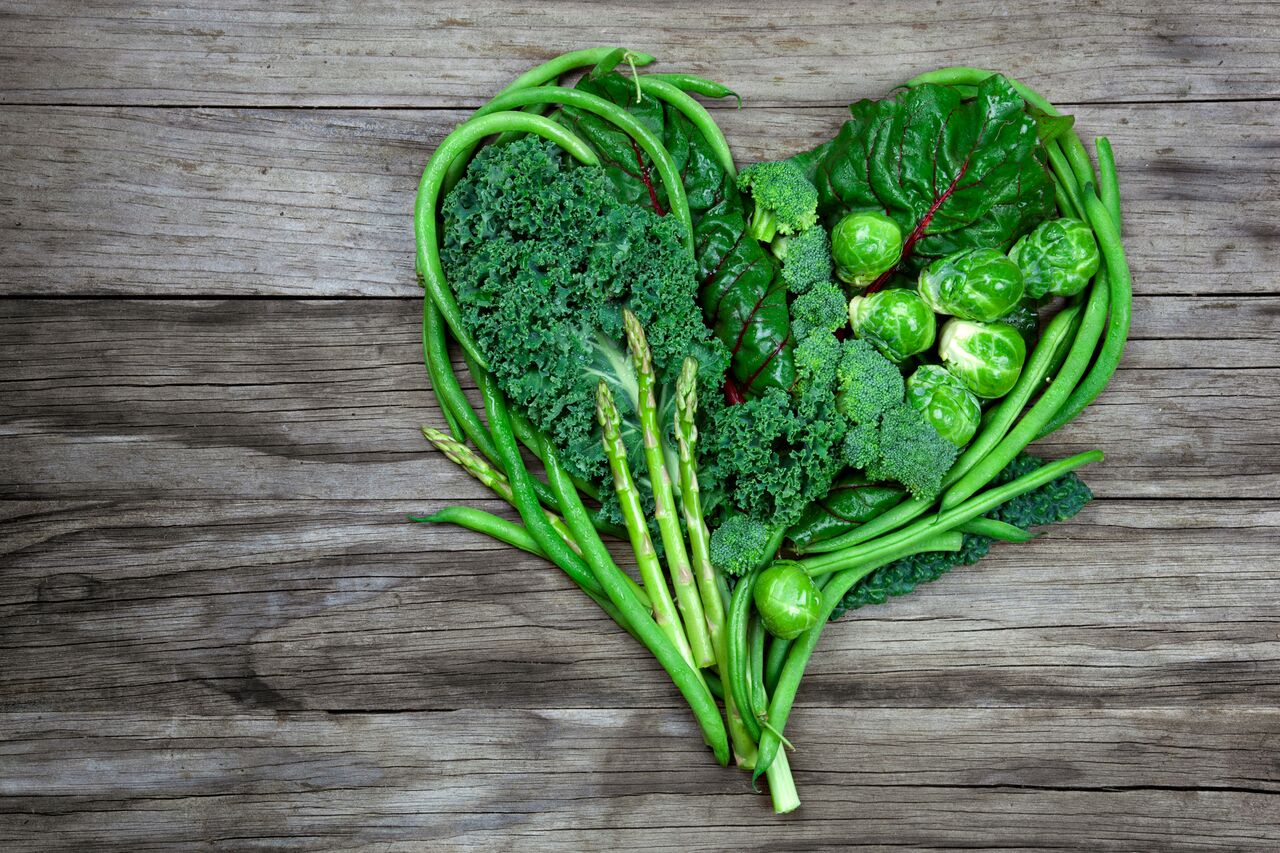Just how healthy are your muscles and joints?
Answer our questions and find out if your flexibility is compromised.
Find out how flexible you areVitamin K is perhaps the least talked about and we’re often unaware of its benefits. However, when it comes to our bone health, vitamin K could have a fundamental role to play. In this blog, I discuss why we need this elusive vitamin and how it could help our bone health.

Vitamin K is an essential fat-soluble vitamin that helps to support our heart and bone health. Vitamin K helps the body create proteins that are needed for normal blood clotting, which makes it an extremely beneficial nutrient for supporting a healthy circulation. Vitamin K works alongside vitamin D to support bone metabolism and bone density and is thought to help maintain good cognitive functioning.
Although vitamin K deficiency is relatively rare in comparison to other nutritional deficiencies, it is thought to be linked to an increased risk of developing heart disease or having a stroke. In addition to being beneficial for our bones, some other functions of vitamin K include:
Helping heart health
Vitamin K is thought to help prevent calcification of the arteries which is a build-up of calcium in the blood vessels, tissues and organs. One study found that vitamin K could help to prevent artery hardening by preventing calcium from building up and lining the artery walls and eventually resulting in higher risk of heart health problems.
Supports normal blood clotting
Vitamin K is used by the body to help clot blood which is why it is important to be aware of your vitamin K levels whilst on blood thinning medication such as Warfarin as this vitamin can reduce the effectiveness of, or interfere with, blood thinning medication. According to Oregon State University, vitamin K is essential for several proteins that are involved in the coagulation (blood clotting) process. In fact, the K from this essential fat-soluble mineral is originally derived from the German word ‘koagulation’ due to its identification with blot clot formation.
Heavy menstrual bleeding
As a result of its blood clotting properties, vitamin K is also thought to help with heavy menstrual bleeding.
Supports your brain functioning
Vitamin K is thought to be anti-inflammatory and able to protect your brain against oxidative stress and free radical damage which can cause premature ageing. The proteins which are dependent on vitamin K are also found to be important for our brain’s functioning.

Despite not being as essential to our bone health as calcium or vitamin D, studies have found that vitamin K can increase bone mineral density in people with osteoporosis, as well as reduce bone fracture rates. It can help to increase the amount of protein required to maintain bone calcium which can reduce the risk for developing osteoporosis.
Vitamin K also has an indirect role to play in the building of bones as well as maintaining our bone density. Osteocalcin, a small protein associated with bone assembly, helps to absorb calcium from our blood and binds to bones to make them stronger and less vulnerable to fractures and injury. Without vitamin K2 osteocalcin is unable to fully activate and therefore cannot bind properly to calcium.
What’s more, studies are also suggesting that vitamin K positively affects calcium balance which is a key mineral when it comes to bone metabolism. Vitamin K is thought to be beneficial for helping to slow down bone loss in post-menopausal women. As we get older we naturally lose muscle and bone strength – this process is amplified if we don’t remain active.
There are two main types of vitamin K – vitamin K2 and vitamin K1. In comparison to vitamin K1, it’s more difficult to find foods rich in vitamin K2. Therefore, deficiency in K2 is more common however, it is not yet fully understood how the different forms can impact on bone health.
Foods rich in vitamin K1 include:
• Kale
• Broccoli
• Avocados
• Kiwi
Foods rich in vitamin K2 include:
• Ripe cheese
• Yoghurt
• Natto (a Japanese fermented soy food)
• Fermented foods
While the research shows promising results for the beneficial effects of vitamin K on our bone health, it is important to note that this area is still relatively controversial and needs some further research to completely backup some of its claimed benefits. You may be asking what else you can do to support your bone health and the answer is there are lots of things you can do, from making small dietary alterations to keeping active.
You may also find some herbal remedies to be useful, for example our Urticalcin tablets can help to support and maintain bone health. These tablets contain Urtica (stinging nettle), calcium and silica traditionally used to help promote the absorption of calcium into bones. Urtica also has diuretic properties helping to eliminate waste and acidic compounds.
1 https://www.ncbi.nlm.nih.gov/pmc/articles/PMC4566462/
2 http://lpi.oregonstate.edu/mic/vitamins/vitamin-K
3 https://www.ncbi.nlm.nih.gov/pubmed/24108469
4 https://www.ncbi.nlm.nih.gov/pubmed/11684396
 Urticalcin contains a combination of stinging nettle, silicea, calcium and sodium salts.
Urticalcin contains a combination of stinging nettle, silicea, calcium and sodium salts.
The product can strengthen the hair and nails, but helps in a number of other ways too.
Buy locally now.
“Excellent remedy for numerous things. Used it for many, many years and would not live without it."![]()
To find stores in your area that sell Urticalcin, simply type your postcode below.

Answer our questions and find out if your flexibility is compromised.
Find out how flexible you areAs the A. Vogel Muscles and Joints advisor, I recommend Atrogel® for the effective relief from aches and pains.
Learn moreYour gut could be to blame for your joint pain! New studies have found potential links between the 'bad' bacteria in the digestive tracts and certain types of joint pain!
Is your gut to blame?Discover the story of Alfred VogelNature is just about the best thing we’ve got!